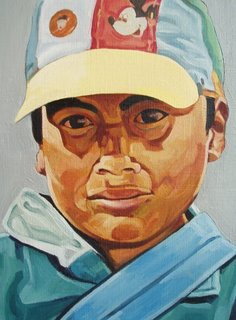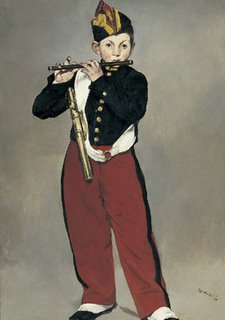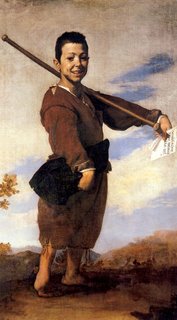En Dios Confiamos

I had never been to a third world country before I went to Ecuador, and the experience of children begging to clean your shoes for a few coins was deeply affecting. If you declined, the mournful protestation - "Si! Si! Si!" - was heart-breaking, and the memory still nags at my conscience. I wanted to paint this uncomfortable picture to move others as I was moved.
For a while I was unsure whether to include a background or not, and at one point I even sketched in a part of the Plaza de la Independencia where I met the boy. I eventually decided against the idea however, as it seemed to sentimentalize the portrait. For the image to work it had to be shocking and immediate. By painting him against a plain background he confronts the viewer more powerfully. At the same time, as there are no other distractions, you are forced to focus on him alone; his expression, his body language, and his clothing, and consequently to wonder about his situation.

The title, "En Dios Confiamos" is painted ambiguously on a rectangle at the bottom left of the portrait. It is a translation into Spanish of "In God We Trust"; in 2000 Ecuador adopted the US Dollar as its currency, and this phrase - in English - appears on their One Dollar coin. As a result it refers both to the change that these children depend on, as well as our own hope that this situation will improve.
"En Dios..." turned out very much as I first conceived it. It was only later when I re-discovered, "The Boy with the Club-Foot" by Jusepe de Ribera, and Edouard Manet's, "The Fife Player" in re-productions, that I realised the similarities. The influence must have been subliminal; I saw them both in Paris in 1997 at the Louvre and at the Musee d'Orsay. I'm afraid my work suffers greatly by comparison, but at least it shows that I was on the right track.
Asking Price: £1,750



0 Comments:
Post a Comment
<< Home